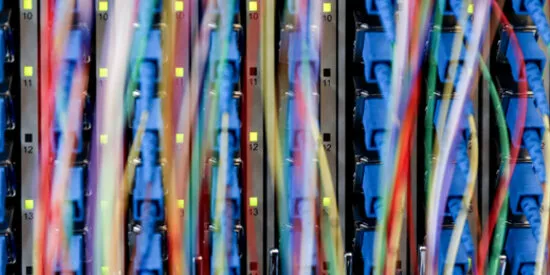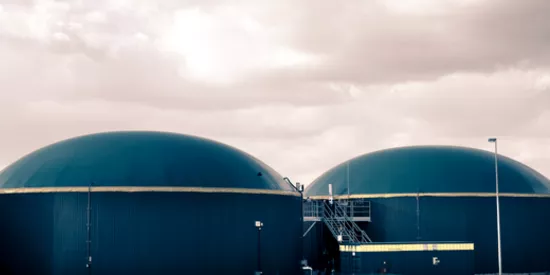
EDF and Societe Generale’s virtual accounts offer
Societe Generale launches a new virtual accounts offer in Europe. On this occasion, EDF, one of the largest energy suppliers in France and abroad, presents the key moments in the co-construction of the project.
The Virtual Account Management (VAM@SG) offer provides Societe Generale's major customers with a global solution enabling them to optimise their reconciliation process, rationalise the structure of their accounts and optimise their cash management. VAM@SG responds to the simplest challenges such as the optimisation of reconciliation processes up to the most complex projects such as the implementation of Central Cash Management Centres.
Testimony of Jérémy ROUBLIQUE, Head of EDF Group’s Payments Team
What were EDF's expectations with the implementation of this solution?
Jérémy ROUBLIQUE: EDF Group Treasury centralises most collections made on behalf of our business units (BUs) and integrated subsidiaries by opening separate bank accounts. As account statements are integrated centrally, the accounting teams of our BUs and subsidiaries did not have access to complementary information, resulting in a large number of requests for information to be processed internally. For confidentiality reasons, our responses must be provided to each BU/ subsidiary independently. This was a time-consuming process. Our Group therefore needed to optimise the management of information and set up a more automated tailor-made system to exchange such information to continue meeting the need for confidentiality of the operations processed.
In order to optimise the reconciliation of our cash forecasts and our achievements, we also needed a solution that would allow us to automatically reconcile the flows received. Finally, via VAM@SG, we aimed to rationalise the structure of our dedicated collection bank accounts. This solution seemed to us to be a good way of overcoming these problems, while automating the reconciliation process.
What were the stakes of this project for EDF?
Jérémy ROUBLIQUE: For several years now, an innovation approach has been implemented within EDF Treasury. New solutions proposed by our external partners are being studied and even tested.
During our discussions with the Société Générale teams, four major challenges for EDF emerged from this project: the industrialisation of the collection process "on behalf of", the reduction of internal exchanges concerning flows received, the rationalisation of the structure of the Group's collection bank accounts and the improvement of our cash flow forecasts.
We also had to ensure that this solution would not have a significant impact on our information system. After discussions with Société Générale experts, a dedicated reporting system for our BUs/subsidiaries was customised and developed based on collective consultation with EDF's accounting and treasury teams.
We needed a dynamic collaboration with a banking partner that was attentive to our needs, proactive and capable of adapting to the different requirements of our business project. Indeed, change management was a key element in the success of this project. The implementation of the VAM@SG had to be technically relevant and be carried out in full cooperation and in compliance with the functioning of our internal teams.
What challenges did you face?
Jérémy ROUBLIQUE: The most important challenge was to convince internal teams of the relevance of the solution and to reassure them about the use of virtual accounts, particularly in relation to our counterparts. The implementation of a continuous dialogue with our internal teams was the key to the success of this project.
What is the timeframe for the implementation of this project?
Jérémy ROUBLIQUE: The phase prior to the technical implementation was the longest because we had, above all, to ensure that this subject was accepted internally and that the "business imperatives" were considered. This subject had an impact on several departments within the EDF Group itself, and each of them was able to embrace and understand the opportunities presented by the solution. The first discussions with Société Générale teams began in April 2019 for an effective implementation of the project in October, that is 6 months to set up this POC ("Proof of Concept"). The implementation period for this project turned out to be very short thanks to the flexibility and proactivity of the Societe Generale and EDF teams.
What is EDF's current assessment of the use of this solution?
Jérémy ROUBLIQUE: Our objective has been largely achieved. We have been able to optimise our operations, automate certain manual tasks and thus save time, while maintaining the quality of our exchanges with our internal teams. We also discovered that the possibilities for optimising internal processes via this solution could be extended to a wider scope. The solution co-constructed with the Societe Generale teams enabled us to adapt it as closely as possible to the expectations of our organisation, with the implementation of customised reporting, which our accounting teams have been waiting for.
What are your future plans?
Jérémy ROUBLIQUE: We will continue working with Societe Generale teams on a new aspect of optimisation, the process of processing multi-currency transactions, in order to consider expanding the scope of the operations concerned. Indeed, our BUs/subsidiaries need to have virtual accounts, accepting different currencies, thus avoiding the need to provide different IBANs for the same counterparty. The current processing of these multi-currency invoices often involves time-consuming manual tasks that need to become reliable and automated.
We will also consider a deployment at the level of other subsidiaries of the Group and continue to optimise the existing solution following the various feedbacks gathered internally.




